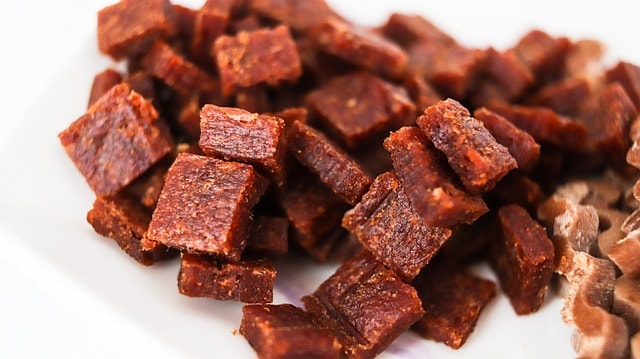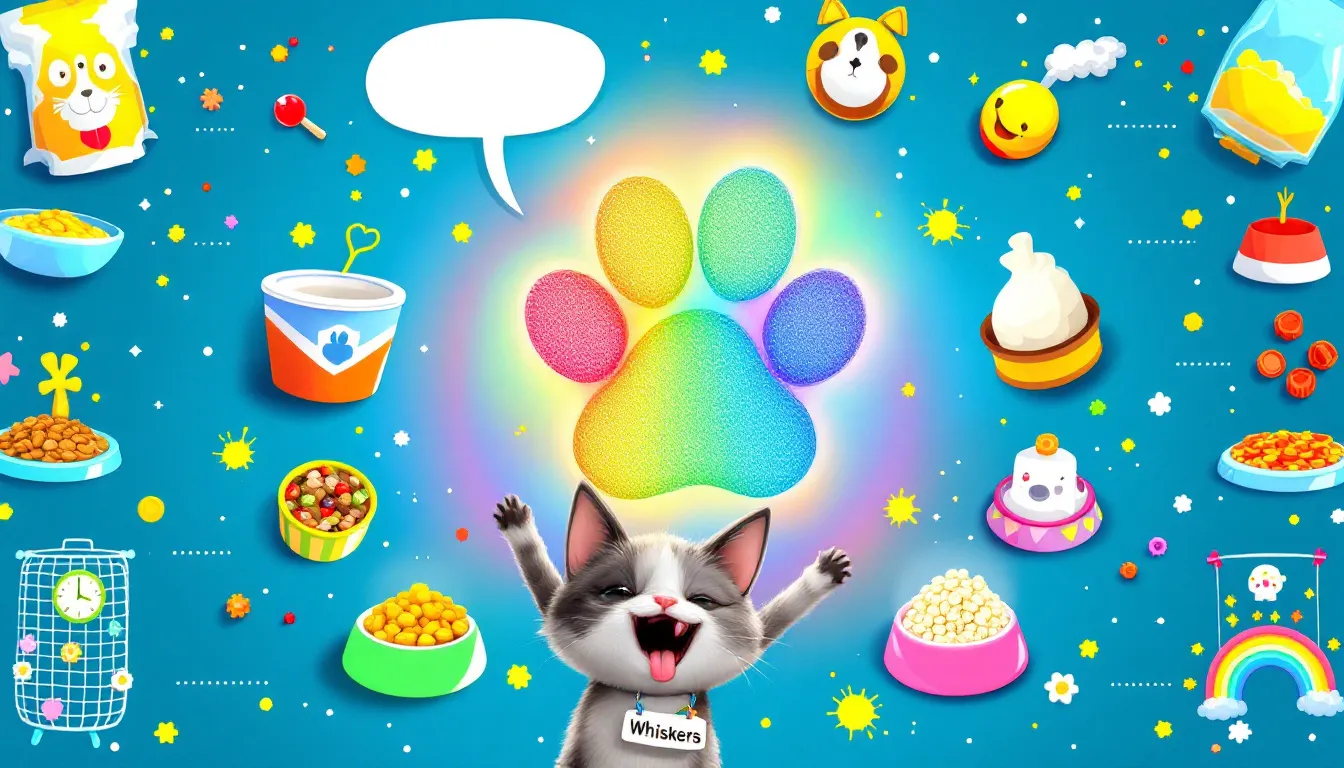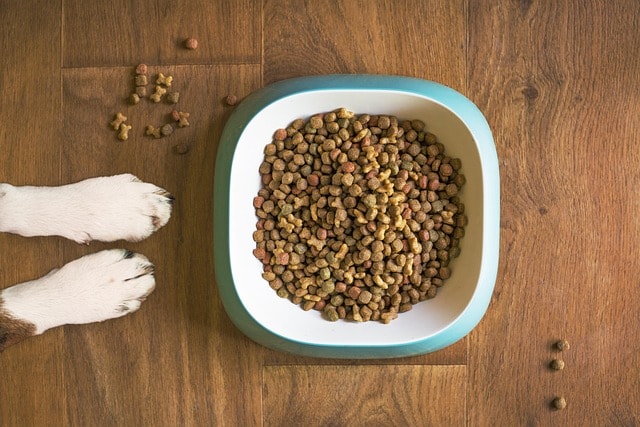Want to ensure your pet’s diet is as healthy as possible? This article will guide you through the top 10 ways to perfect your pet’s nutrition. From selecting the best food to understanding their unique needs, these tips will help you keep your furry friend happy and healthy. Let’s dive into practical advice tailored for pet owners who want the best for their companions.
Key Takeaways
-
High-quality pet food should list meat as the primary ingredient, and preference should be given to natural ingredients over fillers and artificial additives.
-
Understanding a pet’s specific nutritional needs involves considering factors such as age, breed, size, and health conditions, and consulting a veterinarian is essential for tailored dietary recommendations.
-
Maintaining proper portion control, establishing a consistent feeding schedule, and monitoring weight are crucial for preventing obesity and ensuring a balanced diet for pets.
Choose High-Quality Pet Food

Selecting the right pet food is the foundation of your pet’s health. The first ingredient in your pet’s food should always be meat, ensuring high protein levels essential for muscle development and overall health. Whether it’s dog food or cat food, prioritizing meat as the primary ingredient can make a significant difference in your pet’s daily nutrition.
Natural ingredients are preferred over fillers and artificial additives. Fillers often lack nutritional value and can lead to various health issues over time. On the other hand, natural ingredients promote better health for pets, supporting their energy levels, coat condition, and overall well-being. Pet parents should always check the ingredient list to ensure they are feeding their pets the best food available.
The ingredients in pet food are chosen not only for their nutritional content but also to enhance taste and ensure food safety. Regulatory bodies monitor the safety and appropriateness of flavors, colors, and preservatives used in pet food. This means that when you choose a reputable brand, you can trust that the food has been designed with your pet’s health in mind.
Animal by-products, though often misunderstood, can be incredibly nutritious. In the wild, animals consume these parts first, indicating their high nutritional value. By-products can provide essential nutrients that contribute to a balanced diet, ensuring that pets receive all the necessary vitamins and minerals they need.
Understand Your Pet's Nutritional Needs

Understanding your pet’s specific nutritional needs is crucial for their health. For young puppies and kittens, mother's milk provides essential nutrients during their early weeks of life, making it crucial for their initial development. A complete and balanced diet for pets provides more than 40 nutrients in the proper amounts tailored for the life stage of the animal. This means pet food must meet all nutritional requirements, ensuring your pet gets the best nutrition possible.
Pet food labels are an excellent resource for pet owners. They indicate whether the food is complete and balanced, helping you make informed decisions about what to feed your pet. Always check these labels to ensure the food meets your pet’s daily caloric and nutritional needs.
Several factors influence a pet’s diet, including age, breed, size, and health conditions. For example, adult pets may require diets that address joint health, heart disease, or obesity, while puppies and kittens need higher calories and protein to support their rapid growth. Understanding these factors can help you choose the right food and feeding plan for your pet.
Veterinarians play a crucial role in tailoring your pet’s diet. They can help design a diet that addresses specific health conditions and ensures the right nutritional balance. Consulting a vet is particularly important for pets with chronic illnesses, as they require specialized diets to manage their health effectively.
Portion Control is Key
Proper portion control maintains your pet’s overall health by ensuring they do not exceed their pet's daily calories. Proper portioning helps prevent overeating or undereating, which can lead to various health issues. Overfeeding can result in obesity and related diseases, while underfeeding can cause malnutrition and weakness.
Feeding guidelines on pet food packaging provide valuable information on ideal portion sizes. These guidelines consider factors like age, size, lifestyle, and breed, helping you determine how much to feed your pet. Using a measuring cup specifically for pet food ensures accurate portioning, reducing the risk of overfeeding.
Feeding pets at least two times a day helps prevent an empty stomach, which can lead to conditions like hyperacidity and nausea. Establishing a regular feeding schedule not only supports proper digestion but also makes it easier to monitor your pet’s eating habits and health.
Regular Feeding Schedule
A consistent feeding schedule supports your pet’s digestion and overall health. Feeding your pet at consistent times each day, such as once in the morning and once in the evening, helps regulate their digestive system and ensures they receive a balanced diet. Consistent feeding times also aid in portion control, preventing overeating that can negatively impact your pet’s digestive tract. By sticking to a schedule, you can help your pet maintain a healthy eating routine and avoid the issues associated with irregular feeding.
Monitoring changes in your pet’s eating habits is crucial. If you notice any significant changes, such as a sudden loss of appetite or overeating, it may indicate that your pet is unwell and needs attention. Regular feeding schedules make it easier to detect these changes early and address any potential health issues promptly.
Include Fresh Water Daily
Providing fresh water daily is just as important as selecting the right food. Water is crucial for transporting nutrients within the body and aiding in digestion. Ensuring your pet has access to clean water at all times supports their overall health and well-being.
Hydration plays a significant role in regulating body temperature and lubricating joints, which is essential for active pets. Proper hydration helps maintain energy levels and supports vital bodily functions, keeping your pet healthy and active.
Encouraging your pet to drink more water can be achieved by providing multiple water bowls in different locations. This simple step can significantly increase their water intake, contributing to better hydration and health.
Limit Treats
While treats are a great way to reward and bond with your pet, it’s important to limit their intake to ensure they do not exceed their pet's daily calories. A general guideline is that treats should not exceed 10% of a pet’s total daily caloric intake. This ensures that treats do not overshadow the essential nutrients provided by their regular diet.
Excessive treat consumption can contribute to weight gain and other health issues. By regulating treat intake as part of portion control, you can prevent these problems and maintain your pet’s healthy weight.
When choosing treats, opt for those with low calories and high nutritional value. This ensures that even the treats you give contribute positively to your healthy pets’ diet and overall health.
Healthy Treats and Snacks

Healthy treats and snacks are essential for maintaining your pet’s overall health and well-being. Pet owners should choose treats that are nutrient-rich and low in calories to avoid contributing to weight gain. When selecting treats, pet parents should consider their pet’s age, size, and dietary needs to ensure they are providing the best food for their furry friends.
For both dogs and cats, treats should not exceed 10% of their daily calorie intake. This helps maintain a balanced diet and prevents overfeeding. Healthy treats can include fruits, vegetables, and lean proteins, such as carrots, green beans, and chicken. These options are not only nutritious but also low in calories, making them ideal for maintaining a healthy weight.
Pet owners can also opt for low-calorie, nutrient-rich commercial treats that are specifically formulated for their pet’s life stage and lifestyle. For example, senior pets may require treats that are easier to digest and support joint health, while large dogs may benefit from treats that support their joint health and mobility.
It’s important to avoid giving pets table scraps, as they can be high in calories, fat, and salt, and may cause digestive upset. Instead, pet owners can use healthy treats as rewards during training or as a way to add variety to their pet’s diet. By choosing healthy treats and snacks, pet owners can help support their pet’s healthy weight, overall health, and well-being, ensuring they lead a long and healthy life.
Avoid Table Scraps
Feeding your pet table scraps can expose them to dangerous human foods. Many human comfort foods contain ingredients that are harmful or toxic to pets, such as:
-
chocolate
-
caffeine
-
grapes
-
raisins
-
onions
-
garlic
These substances can cause severe health issues and should be strictly avoided.
Certain human foods and ingredients can cause digestive upset or harm to pets. Even small amounts of these foods can lead to significant health problems, including gastrointestinal distress and poisoning.
Feeding pets table scraps can also lead to weight gain and other health issues. By avoiding table scraps, you help maintain your pet’s healthy weight and prevent the risks associated with consuming inappropriate foods.
Consider Life Stage Diets

Different life stages require different nutritional considerations for pets. For newborn puppies and kittens, mother's milk is essential for providing the necessary nutrients during their early stages of life. Puppies need a diet rich in calories and nutrients to support their rapid growth. As pets age, their nutritional needs change, and their diets should be adjusted accordingly to maintain a healthy life.
Regular vet visits help monitor your pet’s health and adjust their diet as needed. Vets can provide specific recommendations based on your pet’s age, health status, and lifestyle, ensuring senior pets receive the best nutrition at every stage of life.
Considering life stage diets ensures that your pet gets the appropriate nutrients they need, preventing issues like obesity, kidney disease, and heart disease as they age.
Monitor Healthy Weight and Adjust Diet

Regularly monitoring your pet’s weight is crucial for maintaining their health. Weighing your pet can help track weight gain or loss, allowing for timely adjustments in diet and activity. This proactive approach helps prevent obesity and other weight-related issues by ensuring your pet does not exceed their pet's daily calories.
One effective way to determine if a pet is at a healthy weight is by checking their body condition score, which involves evaluating their physical appearance and fat coverage. This method provides a visual and tactile way to assess your pet’s weight status.
Caloric needs vary based on factors such as:
-
Size
-
Age
-
Activity level
-
Metabolic rate
Adjusting your pet’s caloric intake according to these factors ensures they receive the right amount of energy without gaining excess weight, including consideration of your pet’s daily calories.
Protein is crucial for muscle maintenance and metabolic functions in pets, while micronutrients like vitamins and minerals support essential physiological functions. Ensuring your pet’s diet includes these nutrients is vital for their overall health.
Consult Your Veterinarian
Regular veterinary visits help maintain your pet’s health by providing professional advice tailored to your pet's health needs. During preventive care visits, veterinarians can provide diet recommendations and strategies for weight loss if needed. These visits are an opportunity to discuss any concerns and get professional advice tailored to your pet’s needs.
Vets consider factors such as age, breed, and activity levels when recommending dietary needs. This personalized approach ensures that your pet’s diet is appropriate for their specific situation, promoting optimal health.
Pet owners often underestimate their pets’ weight, which can contribute to obesity if not addressed. Regularly consulting with a veterinarian helps establish and monitor your pet’s ideal weight, preventing pet’s health issues associated with obesity.
Summary
In summary, perfecting your pet’s nutrition involves selecting high-quality food, understanding their specific needs, maintaining portion control, and following a consistent feeding schedule. Providing fresh water daily, limiting treats, avoiding table scraps, and considering life stage diets are also crucial steps. Regular weight monitoring and veterinary consultations ensure that your pet stays healthy and happy throughout their life.
By following these top 10 tips, you can make a significant difference in your pet’s health and well-being. Let’s commit to providing the best nutrition for our beloved pets, ensuring they lead long, happy lives.
Frequently Asked Questions
What are tips for healthy pets?
To ensure your pet’s health, provide a high-quality diet, regular exercise, and fresh water, while keeping up with vaccinations and pest control. Additionally, protecting your pet from parasites like heartworm disease is crucial for their overall health. Regular veterinary check-ups are essential for early detection of any health issues.
What are 4 things owners can do to keep their pets healthy?
To keep pets healthy, owners should ensure their pet's health by providing regular veterinary check-ups, maintaining a balanced and nutritious diet, providing adequate exercise, and ensuring proper vaccination against diseases. Adhering to these practices fosters a long and healthy life for pets.
How do I choose the best pet food for my pet?
To choose the best pet food, prioritize options with meat as the first ingredient and natural components, avoiding fillers and artificial additives. Always verify that the food is complete and balanced.
How often should I feed my pet?
You should feed your pet at least twice a day at consistent times, such as in the morning and evening, to ensure proper digestion and portion control. Consistency is key for your pet's health and well-being.
How much water should my pet drink daily?
Your pet should have constant access to fresh, clean water, and offering multiple water bowls can encourage them to drink adequately throughout the day.


